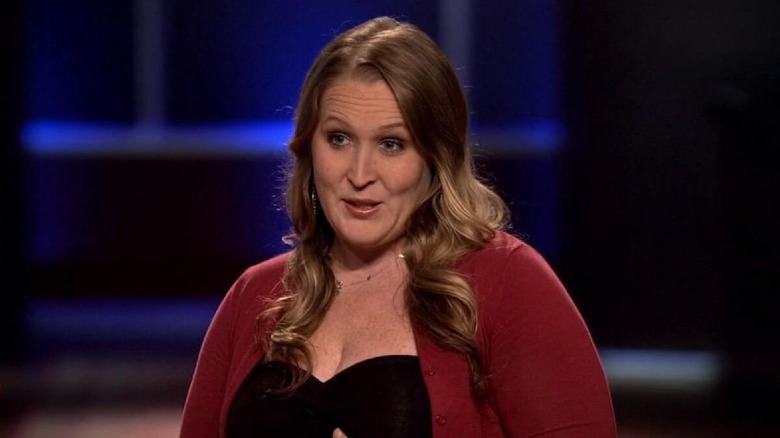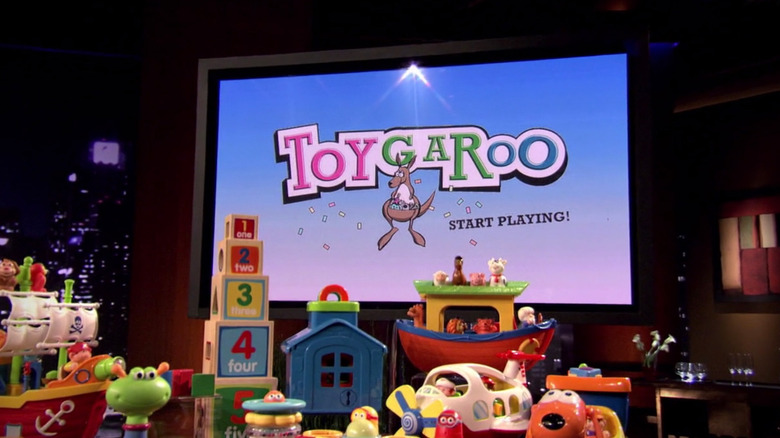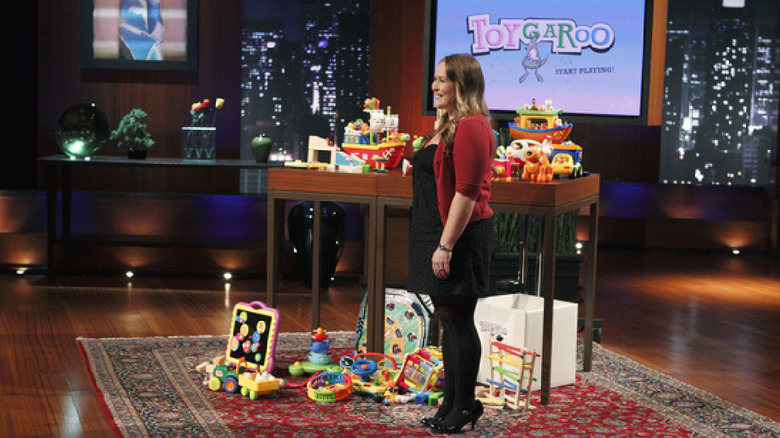Whatever Happened To ToyGaroo After Shark Tank?
We may receive a commission on purchases made from links.
Many parents can relate to this problem: their kids have more toys than they could ever possibly play with, yet they're bored with nearly all of them. This can happen even with higher-end toys like Drive Suits, the driveable car and truck suits, or Budsies, the customizable stuffed animals, or even STEM-inspired PopUp Play sets.
Entrepreneur Nikki Pope tried to solve this problem when she appeared on "Shark Tank" in March 2011, during the show's second season, to pitch her company, ToyGaroo. The elevator pitch for ToyGaroo was simple: it was billed as "the Netflix of toys." In other words, it was a toy subscription service. Parents could rent toys online and return them when their child outgrew them or got tired of them, with each toy thoroughly sanitized between uses. If a child loved the toy, it could be purchased.
Pope's initial ask was for $100,000 in exchange for a 10% equity stake in her company. She received two offers: one from Kevin O'Leary, who offered $100,000 for 35% of ToyGaroo, and another from Mark Cuban and Robert Herjavec, who offered $200,000 for 40%. O'Leary leaned heavily on his experience with toy retailers like Mattel, which convinced Cuban to cut Herjavec out and make the same offer with O'Leary. Pope accepted and went into business with O'Leary and Cuban. What happened next?
ToyGaroo couldn't control costs
Unfortunately, ToyGaroo is no more. The company's website is long defunct, and its social media hasn't been updated since 2014. But thanks to Phil Smy, we have a clear picture of what went down. Smy is a software designer and web developer who helped create ToyGaroo's website and also had a percentage of shares in the company. In 2018, Smy gave an interview with the blog Failory in which he explained why ToyGaroo faltered.
In the end, it came down to costs, specifically toy purchasing and shipping. First, the company was unable to secure deals with toy makers to purchase toys wholesale — Smy said that Kevin O'Leary's promised connections to the toy industry never materialized. He added that the business also faced pushback from the manufacturers directly. "Toy companies didn't like us as they saw us as depleting sales by offering rentals," Smy recalled. "I myself had a meeting in Tokyo at Konami where I was told point blank they would never cooperate with such a scheme."
Second, the company couldn't agree on a shipping plan. ToyGaroo originally offered free shipping. After "Shark Tank," the company's leadership wanted to start charging for shipping. Smy says that Cuban's team overruled them, since paid shipping wasn't what they'd signed up for. When ToyGaroo's decision-makers realized that there was no feasible way to continue their company, they decided to shut it down. Cuban's team did offer to buy out the company, but ToyGaroo declined.
Going on Shark Tank was the wrong move
For Phil Smy, Nikki Pope's decision to pitch ToyGaroo on "Shark Tank" was a miscalculation. As he told Failory, "I think inside Toygaroo there were two camps — the 'go on Shark Tank' side and the 'don't' side. I was on 'team don't.'"
The business never had trouble finding customers and had already attracted national attention, but when ToyGaroo received the traditional "Shark Tank" effect — an uptick in customers after their episode was broadcast — the company wasn't ready to handle them. "Like most 'Shark Tank' appearances, we got a spike when the show aired," Smy told Failory. "Which was not what we needed as a sudden influx into a business that depends on stock is not a good thing!"
In the end, the "Shark Tank bump" was arguably a major factor in ToyGaroo's undoing. Some companies have prospered after appearing on the show, while others — like ToyGaroo — were unable to handle the increased traffic. Sometimes, a great idea can be done in by faulty execution. Asked what he would do differently if ToyGaroo got a second chance, Smy said, "Not go on 'Shark Tank,' just build organically. Always have a handle on the key components of your business. We just didn't."
"Shark Tank" is available for purchase on Prime Video.


